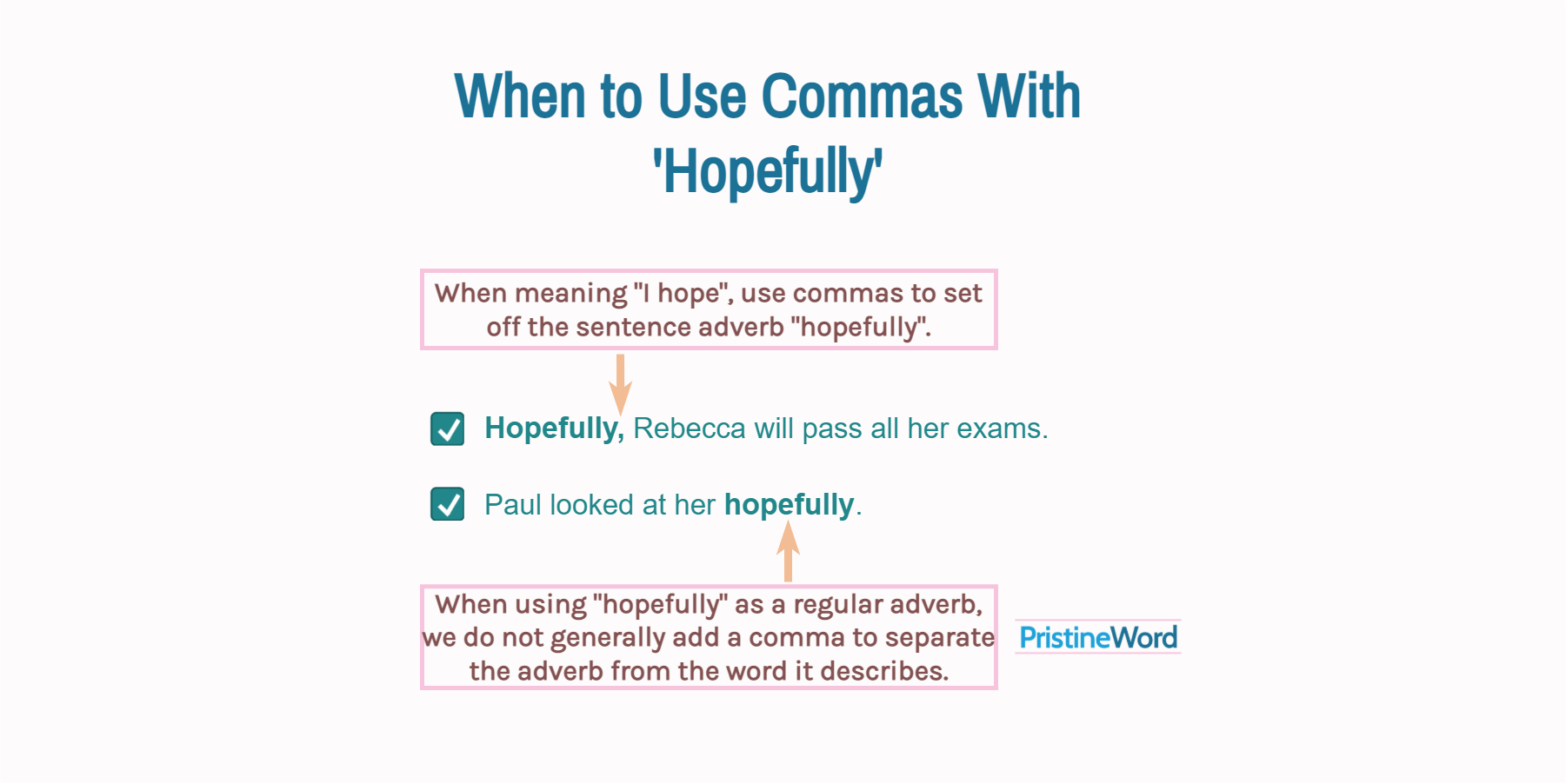When meaning "I hope", use commas to set off the sentence adverb "hopefully". When using "hopefully" as a regular adverb, we do not generally place a comma to separate the adverb from the word (verb, adjective, or adverb) it describes.
When meaning "I hope", use commas to set off the sentence adverb "hopefully".
Hopefully, Rebecca will pass all her exams.
Hopefully Rebecca will pass all her exams.
When using "hopefully" as a regular adverb, we do not generally place a comma to separate the adverb from the word (verb, adjective, or adverb) it describes.
Paul looked at her hopefully.
1. Can 'Hopefully' Be a Sentence Adverb?
Yes, "hopefully" can serve as a sentence adverb. Sentence adverbs are different from regular adverbs. They are an efficient way to comment directly on the content of a sentence—by reflecting the speaker's judgement, attitude, or opinion.
Hopefully, kindness and compassion will be taught instead of greed.
The adverb "hopefully" can have two different meanings:
- "I hope" or "it is hoped that" (e.g., "Hopefully, it won't rain tomorrow.")
- "With hope" or "in a hopeful manner" (e.g., "She sees the future hopefully.")
"Hopefully" originally meant "in a hopeful manner", but the long-time use of "hopefully" to express "I hope" legitimizes its use as a sentence adverb.
Hopefully, things will get better soon.
Hopefully, Mary will come up with something that will make them happy.
2. When to Use Commas
Use commas to set off a sentence adverb, such as "hopefully" when meaning "I hope" or "it is hoped that".
Hopefully, my son will pass the exam with the highest score.
In the sentence above, "hopefully" is a sentence adverb (not a regular adverb).
Another example:
Hopefully, technology and science will bring out the best in humanity.
Sentence adverbs can also be used, surrounded by commas, in the middle of a sentence.
Tolerance and diversity, hopefully, will be the golden rule that guides humanity.
In the end position, they should be preceded by a comma.
The rule of law will be stronger than the rule of might, hopefully.
3. When to Avoid Commas
Unless the particular sentence structure requires it, commas are generally unnecessary when using "hopefully" as a regular adverb. In such a situation, the adverb modifies a single word, not a sentence as a whole.
Olivia scratched the lottery ticket hopefully.
In the sentence above, "hopefully" does not reflect the speaker's attitude; it just modifies (describes) the verb "scratched" to express how the subject (Olivia) did the action, so no comma.

